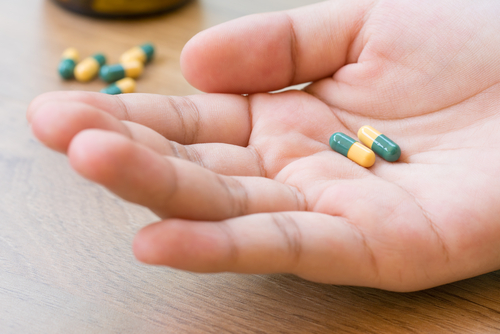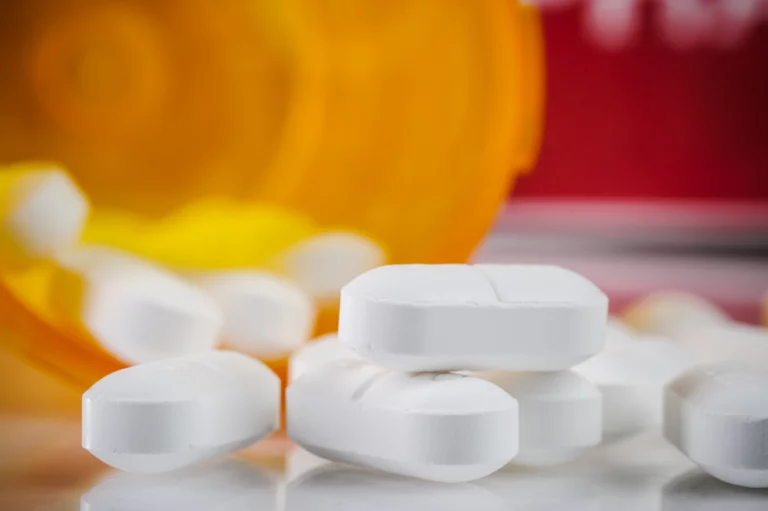As the opioid crisis continues to grow, one in particular has seen a recent rise in popularity as more individuals begin to use it—tramadol. In this article, we will explore this emerging opioid of choice by understanding what it is, its effects on physical and mental health, if it can get you high, and why you should be concerned.
What is Tramadol?
Tramadol, commonly known by its brand name Ultram, is a pain reliever medication that is used to treat moderate to severe pain. It belongs to a class of drugs known as opioid analgesics. These medications are designed to target the body’s central nervous system, where they interact with specific opioid receptors in the brain and spinal cord. Tramadol’s unique mechanism of action sets it apart from some other opioids; it not only binds to opioid receptors but also has an additional role as a serotonin-norepinephrine reuptake inhibitor (SNRI). This dual activity contributes to its ability to influence pain perception and mood. When tramadol interacts with these receptors, it has the potential to generate a range of effects, from pain relief to the creation of euphoric and relaxing sensations. This aspect is why tramadol, like other opioids, is sometimes sought after for recreational use, which may lead to tramadol dependence or addiction.

Can Tramadol Get You High?
Yes, tramadol can get you high. While tramadol is typically seen as a lesser form of opioids, it can still produce the same ‘high’ effects as other opioids.
The ‘high’ from tramadol is a result of the drug binding to these opioid receptors, which are found throughout the central nervous system. This binding not only dulls the perception of pain but can also create the defining relaxation and euphoric sensations associated with opioids. However, it’s essential to emphasize that the euphoria induced by tramadol or any other opioid is not only short-lived but also comes with significant risks, including the potential for addiction, overdose, and various physical and mental health effects. Using tramadol to chase a ‘high’ is a life-threatening habit, and its misuse should be avoided to ensure both physical and mental well-being.
Read More: Pseudoaddiction Vs. Addiction: What You Need to Know
The Effects of Tramadol on Physical Health
Like other opioids, tramadol can cause various side effects on an individual’s physical health. These side effects of tramadol can range from mild health conditions to severe conditions requiring medical attention. Some of these side effects may include the following:
- Mild Effects: The mild side effects of tramadol include nausea and vomiting, dizziness, constipation, headache, dry mouth, sweating, and itching
- Severe Effects: The severe side effects of tramadol include allergic reactions, seizures, rapid heart rate, high blood pressure, and intense stomach pain
It is important to understand that the mild side effects are more common than the severe side effects. As an individual begins to experience these side effects, they should be able to recognize when they become severe and medical attention is needed.

The Effects of Tramadol on Mental Health
In addition to affecting an individual’s physical health, tramadol can also have implications on an individual’s mental health. Tramadol can cause new mental health conditions and may worsen existing conditions. Some of these side effects may include:
- Anxiety or nervousness
- Mood swings
- Hallucinations
- Confusion
- Depression
- Serotonin syndrome
How Does Tramadol Compare to Other Opioids?
As tramadol use increases, so does the concern for tramadol becoming the new top choice for opioid users. Since the high from tramadol is similar to oxycodone and heroin and has the potential for addiction, it’s essential to know how tramadol compares to other common opioids. Some of the ways that tramadol can be compared to these opioids include:
- Mechanism of Action: Tramadol works as both an opioid agonist and a serotonin-norepinephrine reuptake inhibitor. This dual mechanism of action sets it apart from other opioids as they mainly work by binding opioid receptors in the brain.
- Strength: Tramadol is considered to be a weaker opioid compared to substances like morphine, oxycodone, or fentanyl. This can make tramadol the preferred choice for healthcare professionals when prescribing opioids for mild pain relief.
- Side Effects: As listed above, tramadol has unique side effects associated with it due to its SNRI properties. These properties can cause potential effects on mental health, while other opioids cause traditional side effects such as constipation, drowsiness, and respiratory depression.
- Availability: Like many other opioids, tramadol is available as a prescription medication and is considered a controlled substance in the U.S. While some countries allow lower-dose tramadol forms as over-the-counter medications, other opioids are rarely available in this manner due to their higher potency.
Learn More: How Long Do Opioids Stay In Your System?

Why Should You Be Concerned About Tramadol?
There are many reasons you may be concerned about misusing Tramadol. As seen above, there are many side effects that may arise while abusing Tramadol, but there are other risks to be aware of. Misuse of tramadol presents a range of concerning issues, including the potential for dependence, overdose risk, and a higher likelihood of seizures. Mental health impacts can include anxiety and mood swings, while legal consequences may arise from obtaining it without a prescription. Additionally, tramadol abuse can serve as a gateway to experimenting with more dangerous substances, negatively affecting relationships, work and contributing to the broader opioid crisis.
In recent years, the percentage of individuals who misuse tramadol has increased. According to the 2021 National Survey on Drug Use and Health, 8.7 million individuals misused prescription painkillers in the past year, with 16.1% of individuals misusing tramadol. This showcases the importance of understanding the potential risk of tramadol addiction and why you should be concerned about tramadol.
Tramadol Addiction Treatment Available at Knoxville Recovery Center
If you or a loved one are struggling with tramadol addiction or other substance use disorders, receiving the proper treatment is essential to living a healthy, sober lifestyle. At Knoxville Recovery Center, we provide addiction treatment services to individuals suffering from these disorders by providing holistic, comprehensive, and individualized treatment programs. Our services include medical detox, addiction treatment, aftercare support, and a therapeutic nutritional program. With these services, we are able to offer our clients a solution to any of their problems, helping them achieve life-long sobriety.
Contact us today to learn more about our treatment programs and how we can help you begin your healing journey.








